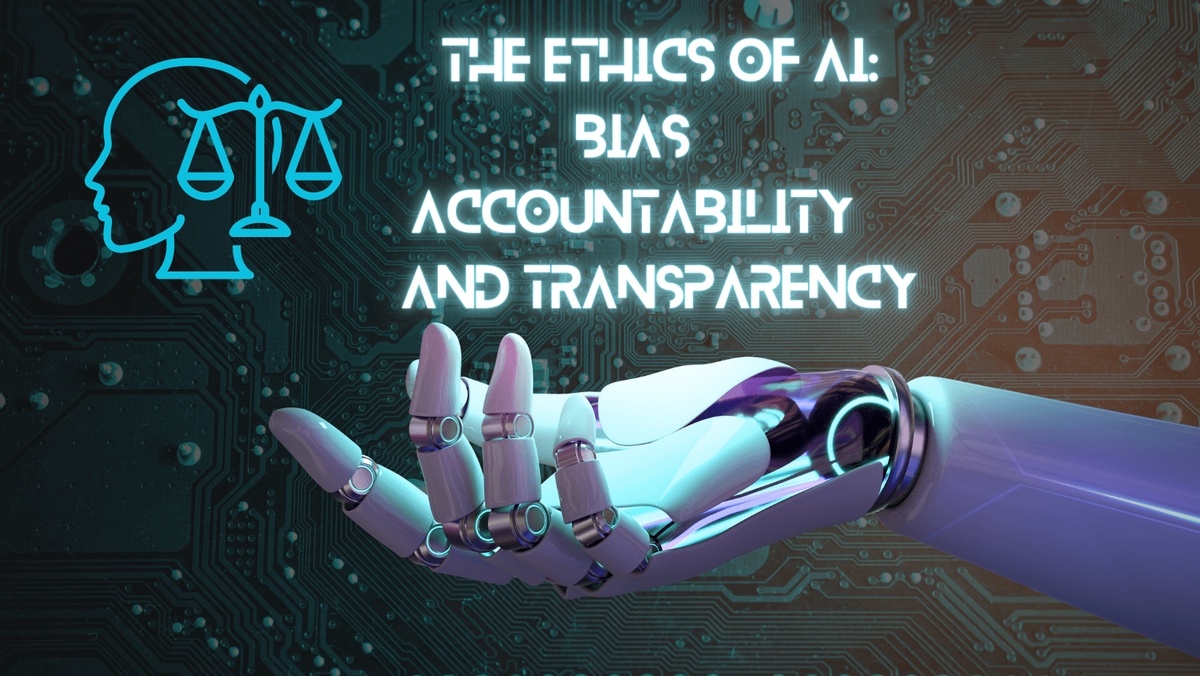Introduction
Artificial Intelligence (AI) has brought about significant changes across various industries, revolutionizing the way we live and work. However, as AI becomes more advanced, there are important ethical considerations that we need to explore. In this article, we will delve into the ethical aspects of AI, focusing on issues like algorithmic bias, accountability, and the need for transparency.
Understanding Algorithmic Bias
When AI systems make decisions, they rely on data to learn and predict outcomes. However, sometimes this data can be biased, leading to unfair results. This is known as algorithmic bias. For example, if an AI system is trained on data that is biased towards a certain group, it might make unfair decisions that favor that group. This can have real-world consequences, such as perpetuating inequality.
Holding AI Accountable
As AI systems become more complex, it becomes important to figure out who is responsible if something goes wrong. This is called accountability. Imagine if a self-driving car caused an accident. Who would be responsible - the car manufacturer, the AI programmer, or someone else? Ensuring accountability in the world of AI is a challenge, but it's necessary to make sure that the technology is used safely and responsibly.
The Importance of Transparency
Transparency means being open and clear about how something works. In the context of AI, transparency is crucial because it helps people understand how AI systems make decisions. When people know how AI works, they can trust it more. Explainable AI (XAI) is an approach that aims to make AI systems understandable to regular people. This way, users can know why a particular decision was made by the AI.
Ethical Responsibility and AI Governance
Companies and developers who create AI have an ethical responsibility to ensure that their technology is used in a positive and fair way. This involves following ethical guidelines and being aware of the potential impact of their AI systems. Additionally, collaboration among different groups - like developers, ethicists, and policymakers - is important to set standards for ethical AI development.
The Human Element in AI
While AI systems are powerful, they lack human values and judgment. This means that there's a role for humans in making ethical decisions about how AI is used. Even though AI can process data and make predictions, it's important to have human oversight to ensure that the technology is used in a way that is fair and just.
Educating and Creating Awareness
Not everyone understands how AI works, and this lack of knowledge can lead to misunderstandings and fears. Educating the public about AI's capabilities and limitations is crucial. When people are well-informed, they can make better decisions and have more meaningful discussions about the ethical implications of AI.
Navigating the Future
As AI continues to advance, it will merge with other technologies and become even more integrated into our lives. This presents new ethical challenges that need to be addressed. For instance, as AI is used in law enforcement, questions about privacy and bias arise. It's important for society to continue discussing and finding solutions to these challenges.
Code::Blocks functions as an integrated development environment (IDE) renowned for streamlining programming tasks. It presents a user-friendly arena for coding in languages such as C and C++, incorporating attributes like syntax highlighting and a debugger. The popularity of Code::Blocks is attributable to its adaptable interface and capacity to accommodate multiple compilers, positioning it as the preferred selection among developers. Furthermore, it facilitates a productive coding experience, particularly when making use of the visually soothing codeblocks dark theme to create a comfortable environment.
Conclusion
In conclusion, AI is changing the world, but with these changes come ethical responsibilities. From algorithmic bias to transparency and accountability, there are important considerations that need to be taken into account. By working together and keeping these ethical principles in mind, we can ensure that AI benefits everyone in a fair and responsible manner.
FAQs
1. Is it possible to completely eliminate algorithmic bias in AI? While it's difficult to completely eliminate bias, steps can be taken to reduce it by carefully selecting and monitoring data.
2. How can individuals contribute to ethical AI usage? Individuals can advocate for ethical AI practices and educate themselves about the technology's impact.
3. What is Explainable AI (XAI)? Explainable AI aims to make AI systems understandable to regular people, helping them comprehend AI decisions.
4. How are governments involved in AI ethics? Governments are introducing guidelines and regulations to ensure AI is developed and used responsibly.
5. What challenges does the future hold for AI ethics? As AI integrates with emerging technologies, new ethical challenges will arise that require ongoing discussions and solutions.



No comments yet